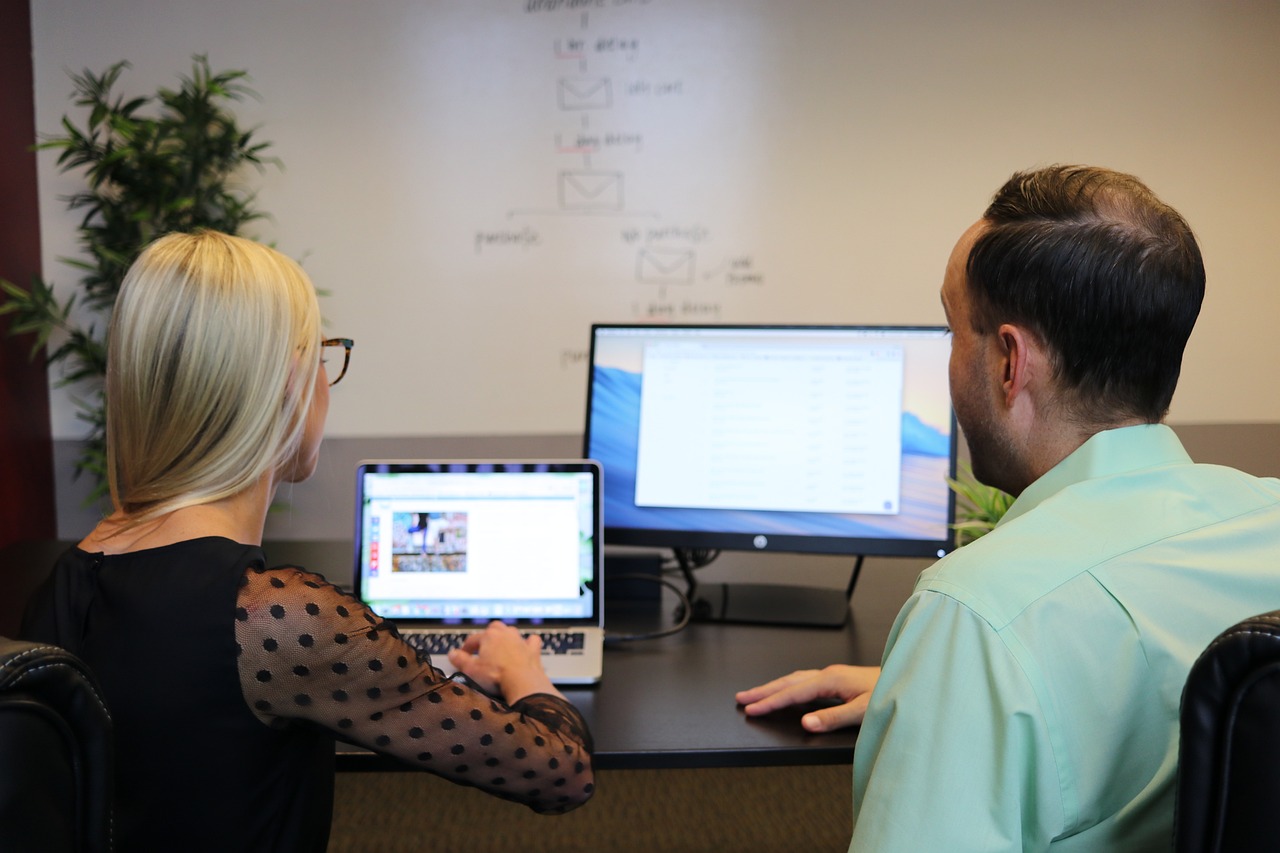Cost of Hiring a Web Design Agency in London
Hiring a web design agency in London can feel like a big decision. With so many agencies offering various services and pricing structures, how do you choose the right one?
Whether you’re starting a business or rebranding an existing one, the quality of your website plays a major role in attracting and retaining customers. But how much should you expect to pay for professional web design services?
In this post, we’ll break down the factors that influence web design costs. We’ll look at everything from project complexity to the experience of the agency. If you’re considering a custom design versus using templates, we’ll give you the insights you need to make an informed choice.
We’ll also discuss different pricing structures, including hourly rates, fixed pricing, and packages, so you can decide which one works best for your budget.
Choosing the right web design agency isn’t just about getting the lowest price—it’s about finding the best value for your money.
Let’s explore how you can get the most out of your investment while meeting your project goals. Ready to dive in? Keep reading to discover the true cost of hiring a web design agency in London.

Factors That Influence Web Design Costs
Project Complexity
The scope of your project plays a significant role in determining the cost. The number of pages and the specific features you need on your website will directly impact the price.
For example, a simple website with just a few pages will generally cost less than a large, multi-page site with custom features.
Another factor is how much integration your site needs. If your website requires connections with third-party tools, like e-commerce platforms, CRM systems, or payment gateways, the price can rise.
This is because these integrations require extra time and technical expertise to set up, adding to the overall cost of the project.
The more features and functionalities you need, the more it will cost to develop your site, so it’s important to carefully plan and prioritize your website’s features before getting a quote.
Experience and Expertise of the Agency
The level of experience and expertise of the agency you choose can have a direct impact on the cost of your web design project. Well-established agencies with a strong portfolio and track record may charge more for their services.
Their higher fees often reflect their years of experience, skills, and the quality of work they deliver. These agencies might also provide more comprehensive services, such as in-depth consulting, advanced features, and long-term support.
On the other hand, smaller or newer agencies might offer lower rates. They can provide good-quality work but may not have the same resources or industry experience as larger agencies.
Freelancers, especially those with niche expertise, may also be a more affordable option, but you may need to manage communication and project details more closely.
Custom Design vs. Templates
Template-based designs can be an affordable and quick option for many businesses. They offer a variety of pre-designed layouts that can be customized to fit your brand.
One of the main benefits is cost-effectiveness, as the design work is already done, and you only need to adjust it to your needs. Templates are often ideal for businesses that don’t have complex requirements and need a simple, functional site in a short time.
However, templates also have limitations. They are not as unique and can make your website look similar to others. Customizing templates to achieve a truly distinct appearance might require extra work, and there is still the chance your site may not stand out as much as you’d like.
A custom design is worth the investment if your business has specific needs or if you want your website to stand out. Custom designs offer more flexibility, allowing for a tailored user experience and distinctive brand presentation.
They are more expensive because they require more time and skill to create, but they offer a unique look and feel that can better represent your brand’s identity and help your business make a stronger impression on visitors.
Hourly Rates
The average hourly rate for web design agencies in London can vary significantly, depending on the agency’s experience and expertise. Rates typically range from £50 to £150 per hour, with some high-end agencies charging even more.
More experienced agencies or those with a strong reputation might have higher rates due to the quality and reliability they offer.
One benefit of paying by the hour is flexibility. You only pay for the time worked, which can be beneficial if your project is straightforward or you have a clear, limited scope.
However, one drawback is that costs can become unpredictable if the project takes longer than expected. If the project’s scope is not well defined or changes during development, you might end up spending more than anticipated.

Fixed Pricing
The scope and requirements of the project determine fixed pricing. Agencies typically evaluate the complexity, number of pages, custom features, and expected timeline to provide a set price.
This type of pricing works well when the project details are clear, as it allows both parties to agree on a cost upfront.
One of the key benefits of fixed pricing is predictability. You know exactly how much you’ll be paying, regardless of how long the project takes. This can help you budget and plan more effectively.
However, if your project changes or additional work is required, the cost may increase. Fixed pricing is a good choice for projects with well-defined goals and minimal modifications during development.
Packages and Bundles
Packages and bundles are popular pricing models that include a set of services for one price. Common services often found in these packages include website design, development, SEO optimization, content creation, and hosting.
Some agencies also offer ongoing support and maintenance as part of the bundle.
The overall cost can vary based on what is included in the package. If you need additional services, such as custom features or more complex functionality, this can increase the price.
However, packages can also provide savings, as they often bundle services at a lower cost compared to purchasing them individually.
If you’re looking for a cost-effective way to get a complete website with added services, packages can be a good option, especially if you know exactly what services you need.
Assessing Your Needs and Budget
Before hiring a web design agency, it’s important to understand your own needs and budget. Think about the main goals of your project and what features your website must have. Whether it’s an online store, a portfolio, or a business landing page, setting priorities can help you decide which services are necessary.
It’s also essential to match these needs with the agency’s offerings. Make sure the agency has experience with the type of website you’re aiming for and that its pricing fits within your budget.
Questions to Ask Potential Agencies
When interviewing a web design agency, ask questions that help you understand their approach and expertise. Key questions include:
- Can you show examples of similar projects you’ve worked on?
- What is your design and development process?
- How do you ensure the project stays on schedule and within budget?
- Will I have control over the design, or do you take the lead?
- How do you handle revisions or changes during the project?
These questions will help gauge the agency’s experience and ensure they align with your expectations.
Comparing Offers
Once you have quotes from different agencies, it’s time to compare. Look beyond just the price and evaluate the value each agency offers.
A lower quote might sound attractive, but it could indicate a lack of experience or limited services.
On the other hand, a higher price doesn’t always guarantee better quality. Weigh the benefits, such as the quality of work, timelines, and the services included, to find the right balance between quality and affordability.
Ongoing Maintenance
Once your website is live, ongoing maintenance is necessary to keep it running smoothly. This can include updating content, fixing bugs, ensuring security, and making sure the website works across different devices.
Maintenance costs vary depending on how frequently you want updates and whether you need to make major changes or add new features.
It’s important to ask your agency about their maintenance packages and estimate how much upkeep your website will need in the future.
Content Creation and Add-Ons
Some web design agencies might offer content creation as part of their service, but if not, you may need to budget for additional costs.
This can include copywriting, photography, video production, or other multimedia services. If you want extra features like e-commerce functionality, custom tools, or future upgrades, these will also add to the cost.
Keep in mind that adding new features down the line might cost more than expected, so it’s helpful to plan ahead for potential future needs.
Why Hire a Specialist
- Hiring a web design specialist ensures a professional touch. They bring years of experience and knowledge to the table, which can save time and prevent costly mistakes that might occur with DIY methods.
- A professional can also focus on long-term outcomes, optimizing the website for future growth and changes. This is especially valuable for businesses in London, where competition is high and having a strong online presence is key to standing out.
Learn more about how to choose the right web design service for your needs.
Check out our list of essential questions to ask web design agencies before making a decision.
Conclusion
Deciding on the right web design agency can feel overwhelming, but it doesn’t have to be. By understanding the factors that influence the cost, you can make a more informed decision that aligns with your goals and budget.
Whether you opt for hourly rates, fixed pricing, or a package deal, the key is finding an agency that offers the right balance of quality and cost-effectiveness.
Think about what matters most for your project—be it design complexity, ongoing support, or unique custom features.
What kind of experience do you want to provide your visitors? When you consider these factors, you’re in a stronger position to choose a service that fits your business needs.
The investment in a professional website is more than just the upfront cost. It’s about the long-term impact on your brand’s online presence and overall success.
A well-designed website can set you apart from competitors and leave a lasting impression on your customers. So, take the time to weigh your options carefully.
Does the agency understand your vision? Are they offering the right services for the right price? With the right web design partner, you’ll be able to create a website that not only looks great but also helps you reach your business goals.
